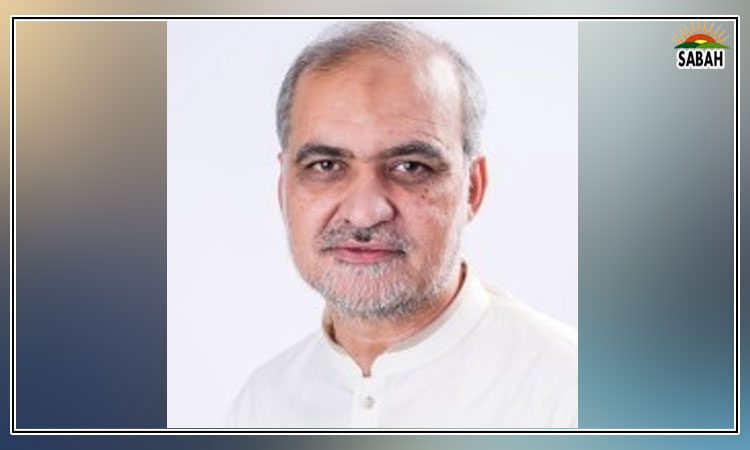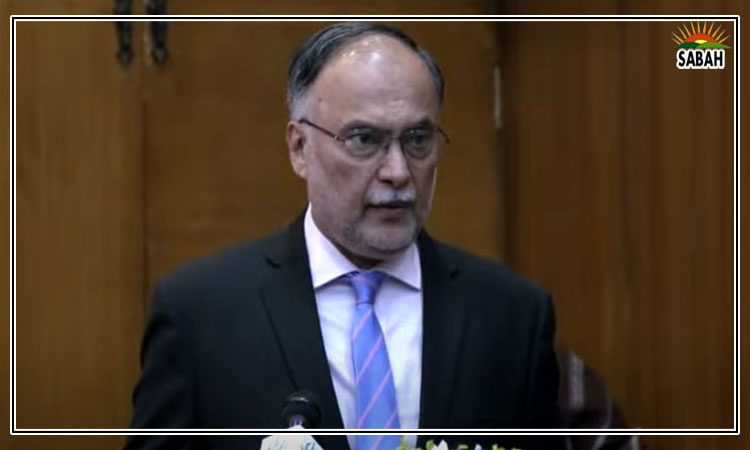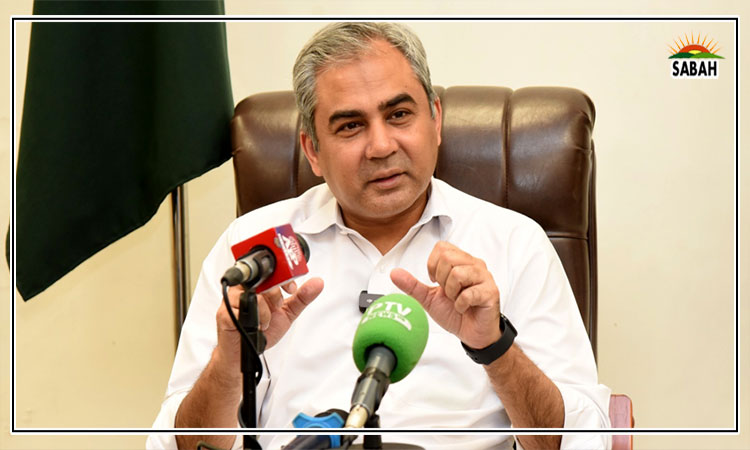What we do by default…Farrukh Khan Pitafi
Taika Waititi is a genius. I accidentally stumbled upon his Jojo Rabbit. And since then, every time he is involved in a project, I find myself inexplicably attracted to it. Humour and satire represent the finest aspects of human intellect. That is why I am amazed when intellectuals refuse to accept a compliment about their sense of humour and want to prove how serious they can be. Any fool can be serious. To make people laugh is something of a higher calling.
Before we drift further away from the topic, I just wanted you to know the partial source of todays title. Like his Our Flag Means Death, a satire about pirates, his other satire on vampires, What We Do in the Shadows, gets very high approval ratings from viewers and reviewers. And as you can tell, the latter is the source of todays title, albeit partially. And that is where the resemblance ends.
This country is no stranger to crises. Every day brings a new crisis; every day, we all are challenged beyond our limits. When you stop challenging yourself, evolution demands that circumstances challenge you beyond your wits. Survival of the fittest, you see. These crises are everyday wake-up calls by history.
Just look at our default settings. What are the common topics of discussion in our society? Politics and cricket consume an inordinate amount of our time and attention. They are important topics, but not the only ones that matter.
Consider the remarkable world we live in. Innovations and discoveries are redefining the trajectory of human civilisation every passing minute. From space exploration, quantum computing and AI research to the human genome, we have entered the golden age of knowledge and invention. Similarly, there is no shortage of great sports in the world. There is no reason why this country may not be able to produce great men and women in countless other sports. Also, as a spectator, you may not realise this, but compared to the vast array of sports played in the world, cricket is a somewhat dull sport to watch. But that is all we can think of.
The question is, why? The simple answer is already given in the title. Because we have been running the national machinery on default settings. Default configurations are seldom customised to your native ecosystem. Without a reinforcing ecosystem, curiosity dies an early death, innovation doesnt stand a chance, and your days are spent putting out fires around you.
You are within your rights to ask what are these blasted default settings and whence they came. The answer to both questions lies in our historical experience. In our colonial experience, the post-colonial states inability to shake the legacy of the past, the mess it created and what Acemoglu and Robinson call the cage of norms which, in the face of colonial onslaught, went defiant to the extent of being subversive. As a society, we have never really tried to tackle these challenges and rewrite our source code. The result has been an unmitigated disaster.
We often hear complaints about how little the country spends on education. But we seldom notice how insignificant is our business communitys contribution to research and development. Our economy is obsessed with the traditional sectors like agriculture and textiles. Even that wouldnt have been so bad had we maintained a competitive advantage in these sectors by constantly adding value. But that is not how default settings work. Sometime in the past, by a happy coincidence, international trading opportunities in textile and agriculture. We have been at it ever since.
When Nawaz Sharifs government was at its peak, it introduced a Prime Ministers Youth Loan Scheme. The ostensible purpose was to usher in an age of startup competition. But the page dedicated to the project on the PMOs website would invariably lead you to the Small and Medium Enterprises Development Authority (SMEDA)s website, which would inundate you with the feasibilities of cattle rearing, poultry and animal husbandry. This despite having the states unlimited resources at its disposal. When you have stopped challenging yourself, what is the need to go beyond your comfort zone? In the recent budget, his brother established a venture capitalist fund worth 5 billion rupees. So far so good, right? But in the same budget, the funds allocated for distributing free laptops to students who may or may not use them for education stood at 10 billion. Priorities, priorities.
No wonder then that for decades, this country has grown accustomed to losing its best and brightest to brain drain.
Just consider our misplaced priorities. In my early youth, Pakistan received a considerable grant from Japan to create an educational TV channel. That is how the idea of more than one terrestrial channel was born. For a few years, the channel kept airing content for distance learning. But then it abandoned the idea and started airing content about everything other than education. I dont know what became of the grant after that. Its twilight years when it aired information about agriculture is still a source of a million jokes. That is how some critics started referring to PTV as the channel which only covers Amreeki Sundi and other crop-destroying pests. This is our national attitude towards knowledge.
In your drawing discussions, you must have heard some elderly individuals talking about Nehrus desire to establish institutions like MIT when Pakistan wanted to acquire more weapons. I dont know how long we will keep blaming the past for our failings. It doesnt take too much time to establish a state of the art educational institution. The Ghulam Ishaq Khan Institute of Technology, NUST and LUMS were not excavated from ancient ruins. It all comes down to our national priorities.
But before people go to these high-end colleges, you need to promote STEM education. How often have you seen cabinet members appearing on national television to present the national STEM policy? If you truly want to be depressed go to any public school and start a conversation with a STEM teacher.
I am loath to use cliched expressions like out-of-the-box thinking and disruption. But our box is so outdated that we need to leave it miles behind. And we need disruptors from all over the world. There needs to be a policy to incentivise returning experts from among the Pakistani diaspora. Likewise, there is no harm in hiring foreign experts for small periods either. Our neighbours are progressing at the speed of light. We, on the other hand, find new excuses to cheat our way out of progress. This country cannot run on the default settings for too long. If it does, we are doomed.
Courtesy The Express Tribune












